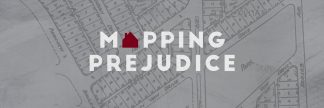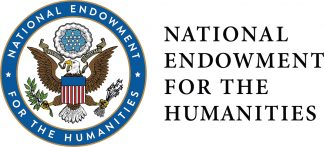By Allison Campbell-Jensen
 After exposing structural racism in Hennepin County, the Mapping Prejudice project at the University of Minnesota Libraries has received new funding to develop its digital tools so they can be used by communities across the country.
After exposing structural racism in Hennepin County, the Mapping Prejudice project at the University of Minnesota Libraries has received new funding to develop its digital tools so they can be used by communities across the country.
The project uses innovative methods to map racial covenants, which were used across the United States in the 20th century to prevent people who were not white from buying or even occupying property.
“Mapping Prejudice has deservedly gained attention for revealing one of the roots of structural racism in Minnesota,” says Lisa German, Dean of the Libraries. “I’m glad that it can serve as a model for other communities as they try to come to terms with the systemic racism that has taken place across the nation.”
Grant will expand the reach of Mapping Prejudice’s work
With a $324,478 grant from the National Endowment for the Humanities, project leaders will be able to refine the suite of digital tools that they developed for mapping racial covenants and to expand and redesign the website.
“Our team has been hearing from communities around the country that are inspired by Mapping Prejudice,” says Project Director Kirsten Delegard. “They see the value of working with community members to map racial covenants and examine the legacies of these racist housing deeds. We are thrilled that the National Endowment for the Humanities is awarding us the resources that we need to share what we have learned. This grant will allow us to refine our methodology so that we can give it to anyone who wants to replicate this work.”
Reframing the conversation around housing justice
The unique methodology of Mapping Prejudice — which combines Geographic Information Systems (GIS), crowd-sourcing, and face-to-face dialogue — has created a dataset valuable to researchers, policymakers, and community activists. With its work in Hennepin County, Mapping Prejudice has prompted changes to zoning regulations in Minneapolis, new state legislation, and reframed the conversation around housing justice.
Once the Zooniverse digital portal — which guides people through transcribing deeds — and the website platform are redesigned and expanded, other communities can join the work.
“We are excited to see what happens when we empower people across the country to do this research,” Delegard says. “We have found it to be a powerful way to catalyze conversations about history and link the practices of the past to the injustices of the present.”
Donate now to Mapping Prejudice Learn how you can helpAbout the National Endowment for the Humanities
 Created in 1965 as an independent federal agency, the National Endowment for the Humanities supports research and learning in history, literature, philosophy, and other areas of the humanities by funding selected, peer-reviewed proposals from around the nation. Additional information about the National Endowment for the Humanities and its grant programs is available at: www.neh.gov.
Created in 1965 as an independent federal agency, the National Endowment for the Humanities supports research and learning in history, literature, philosophy, and other areas of the humanities by funding selected, peer-reviewed proposals from around the nation. Additional information about the National Endowment for the Humanities and its grant programs is available at: www.neh.gov.



